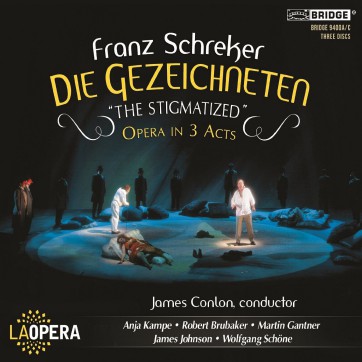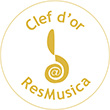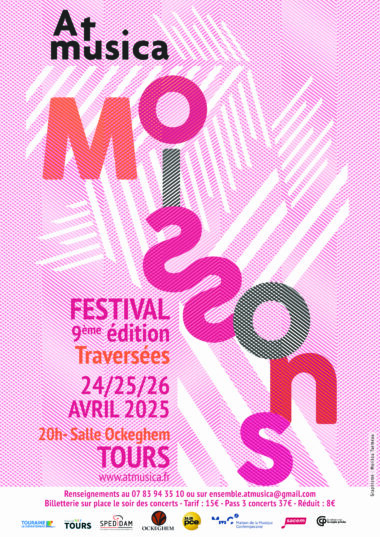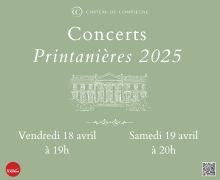Plus de détails
Franz Schreker (1878-1934) : Die Gezeichneten, opéra en 3 actes sur un livret du compositeur. Avec Anja Kampe (Carlotta Nardi), Robert Brubaker (Alviano Salvago), Martin Gantner (Comte Andrea Vitelozzo Tamare), James Johnson (Duc Antoniotto Adorno), Wolfgang Schöne (Lodovico Nardi, Podestà), Beau Gibson (Menaldo Negroni), Joel Sorensen (Guidobald Usodimare), Hyung Yun (Michelotto Cibo), Eugene Brancoveanu (Gonsalvo Fieschi), Matthew Burns (Paolo Calvi), Ben Wager (Julian Pinelli), Keith Jameson (Pietro), Ronnita Nicole Miller (Martuccia), Corey Bix (1er. sénateur), José Adán Pérez (2ème. sénateur), Graig Colclough (3ème sénateur), Valerie Vinzant (Ginevra Scotti), Danielle Walker (une jeune fille), Robert MacNeil (1er. citoyen), Matthew Moore (2ème citoyen), Kenneth Kellogg (3ème. citoyen), Hak Soo Kim (un jeune homme), Gabriel Vamvulescu (son ami), Erica Brookhyser (la mère), Daniel Montenegro (le fils), Rebecca Tomlinson (une servante), Charles Lane (ténor solo), Robert Hovencamp (baryton solo), Gregory Geiger (basse solo). Choeur du Los Angelès Opera (chef de choeur : Grant Gershon); Orchestre du Los Angeles Opera, direction : James Conlon. Enregistré en 2010. 3 CD Bridge Records, Notice en anglais. Livret en anglais et allemand,
texte chanté en allemand, Durée : 02:50:21.
These “Stigmatized” (Die Gezeichneten) by Franz Schreker, Jew-lovers and degenerates (entartete musik) for Hitler's Reich, disappear quickly from the repertoire in 1930.
 The opera debuted in Frankfurt on April 25, 1918, (a triumph, with Else Gentner-Fischer, Karl Ziegler, Robert vom Scheidt, and Walter Schneider, under the baton of Ludwig Rottenberg), six years after the enormous success of Schreker's FERNE KLANG, with a libretto by the composer. After Zemlinsky had been approached, in the end, he preferred not to participate and, on the same theme of the ugly and the grotesque, gave birth to his own gnome.
The opera debuted in Frankfurt on April 25, 1918, (a triumph, with Else Gentner-Fischer, Karl Ziegler, Robert vom Scheidt, and Walter Schneider, under the baton of Ludwig Rottenberg), six years after the enormous success of Schreker's FERNE KLANG, with a libretto by the composer. After Zemlinsky had been approached, in the end, he preferred not to participate and, on the same theme of the ugly and the grotesque, gave birth to his own gnome.
There were a few attempts to revive the work: Frankfurt (1979), Venice (1984), Brussels (1988), Vienna (1991), Leeds (1992), Salzburg (2005), Palermo (2010), Cologne (2013). But very few…The American premier takes place in Los Angeles in April, 2010. Today we have a superb CD recording of a live performance at the Dorothy Chandler Pavilion.
The music, often sumptuous, luxurious, wonderfully complex, layered, mongrelized with the stench of Wagner, Strauss, and Debussy, and the orchestra, flamboyant, white hot, expressionist and sensual, directed by James Conlon, in turn rigorous and unpretentious, then opulent, a long-time ardent defender of this post-Romantic repertoire– go straight to the heart, create emotion, excitement, wonder.
The overture, savage or contemplative, meditative or steely, plunges us at once back to that fin-de-siècle Vienna where Freud, Klimt and Berg held sway, into that 16th century Italy where the grotesque and the distorted of the dream-world always trump reality. Anje Kampe's Carlotta (her tone warm and sensual, exalted), whose sole objective is to reproduce the ugly, monstrous soul of Alviano on her canvas, and for whom Art ultimately represents the only answer, grabs us from the start, imposes expressionism with a commotion, the art nouveau and frenzied lyricism of the work (“Dort, wo die Stadt weit wird.”) Painted with intensely vivid strokes, the perverse, hideous–yet so human– Alviano of Robert Brubaker (his final “Ich will, ich will”) with that dominating, florid tenor (he has played the role since Salzburg, 2005) is right on target…just as are Martin Gantner's Count Tamare–noble, spineless, corrupted; James Johnson's Adorno, an engaged baritone with well-affirmed virility; and Wolfgang Schöne's Podestà.
The other 24 roles are all superbly executed. The voices of these soloists pass the test of the CD admirably, making us recall those nostalgic times, those fears–pernicious and unreasonable, illogical, senseless, reborn and reassessed, thanks to that unforgettable evening in April, 2010, that neither Norman Douglas nor von Gloeden would deny! In sum, one of the most gripping, engaging CD's of this new year.
P.S.: You can also track down the fine recording directed by Lothar Zagrosek (Heinz Kruse, Elizabeth Connell, Monte Pederson); the excellent Salzburg DVD, conducted by Kent Nagano (Anne Schwanewilms, Robert Brubaker, Michael Volle); and the complete audio-CD from Hamburg, 1960 (Evelyn Lear, Helmut Krebs, Thomas Stewart, Franz Krass, under the direction of Winfried Zillig…. quite a program!
Translated by Miriam Ellis
 In cooperation with the Fondation Auschwitz
In cooperation with the Fondation Auschwitzon the memories of political violences
Plus de détails
Franz Schreker (1878-1934) : Die Gezeichneten, opéra en 3 actes sur un livret du compositeur. Avec Anja Kampe (Carlotta Nardi), Robert Brubaker (Alviano Salvago), Martin Gantner (Comte Andrea Vitelozzo Tamare), James Johnson (Duc Antoniotto Adorno), Wolfgang Schöne (Lodovico Nardi, Podestà), Beau Gibson (Menaldo Negroni), Joel Sorensen (Guidobald Usodimare), Hyung Yun (Michelotto Cibo), Eugene Brancoveanu (Gonsalvo Fieschi), Matthew Burns (Paolo Calvi), Ben Wager (Julian Pinelli), Keith Jameson (Pietro), Ronnita Nicole Miller (Martuccia), Corey Bix (1er. sénateur), José Adán Pérez (2ème. sénateur), Graig Colclough (3ème sénateur), Valerie Vinzant (Ginevra Scotti), Danielle Walker (une jeune fille), Robert MacNeil (1er. citoyen), Matthew Moore (2ème citoyen), Kenneth Kellogg (3ème. citoyen), Hak Soo Kim (un jeune homme), Gabriel Vamvulescu (son ami), Erica Brookhyser (la mère), Daniel Montenegro (le fils), Rebecca Tomlinson (une servante), Charles Lane (ténor solo), Robert Hovencamp (baryton solo), Gregory Geiger (basse solo). Choeur du Los Angelès Opera (chef de choeur : Grant Gershon); Orchestre du Los Angeles Opera, direction : James Conlon. Enregistré en 2010. 3 CD Bridge Records, Notice en anglais. Livret en anglais et allemand,
texte chanté en allemand, Durée : 02:50:21.









